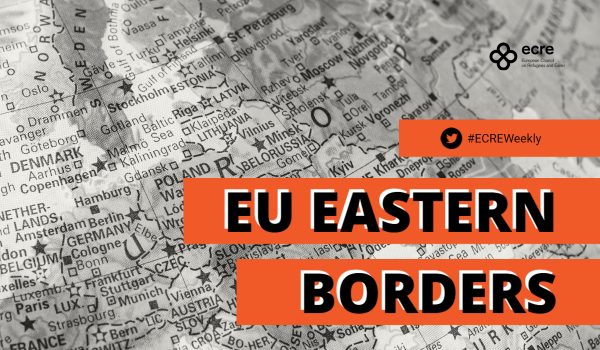The European Commission will provide 100 million to further support member states welcoming refugees from Ukraine amid rising Ukrainian arrivals. Hungary prepares for more Ukrainian arrivals while using different tactics of violence and pushbacks towards refugees from other nationalities.
The European Commission will provide 100 million to further support member states welcoming Ukrainian refugees. The decision follows prior commitments by the Commission of up to €400 million in funding to support refugees from Ukraine in the most affected Member States. Reportedly, the first tranche of €248 million as emergency assistance was allocated to five Member States in May: Poland, Romania, Hungary, Slovakia, and the Czech Republic. The remaining €52 million will be channeled at a later stage towards emerging needs, such as accommodation projects and mental health support programmes. At the International border police community conference, Ylva Johansson, EU Commissioner for Home Affairs thanked border officers for their professionalism in welcoming Ukrainian refugees, stating: “I am proud of the work that Frontex officers do with national border guards. The European Union can only be safe if our neighbours and partners are safe”. In the meantime, more Ukrainians are entering the bloc amid Russian attacks on infrastructure resulting in power cuts across Ukraine leaving people without heat and electricity. According to UNHCR stats, as of 1 November 7,779,928 crossings from Ukraine to Europe were recorded while 4,457,734 people had registered for temporary protection. Poland, Czech Republic and Slovakia host more than 2 million Ukrainian refugees while Hungary hosts around 30.000, yet “falsely” claiming “generous and massive assistance to Ukrainian refugees”. Andras Lederer, from ECRE member the Hungarian Helsinki Committee (HHC) confirmed the modest number stating: “For those that question the data: it is accurate, the source is the Hungarian asylum office and refers to the temporary protection requests registered, not the ones granted (even lower obv). Reasons are manifold, some have been mentioned already: language, ties in other countries”. However, Hungary known for the cruel treatment of people from other countries is currently preparing to host more Ukrainian refugees. Meanwhile, EU countries deported 868 Georgians residing in the zone without papers in the last 3 months as part of a readmission deal. “In order to prevent Georgians from travelling to Europe with the intention of seeking asylum, Georgian authorities started carrying out additional checks at all border points for Georgian citizens travelling to the Schengen Area, asking them to provide additional documents in order to prove they are eligible to travel to and stay in the borderless zone”. Reportedly, on 2 November, Poland has started constructing a 2.5-meter high and 3-meter deep wall along its border with Russia to be completed by the end of 2023. According to Polish authorities, Russia has plans to use the border as a “conduit for illegal migration”. Polish border guard spokesman said: “We are not only there in times of peace. We are prepared for various crisis situations and after what happened on the Polish-Belarusian border we are even more prepared for everything, for all of the darkest scenarios”. In the meantime, Russians continue to leave their country towards the EU. 28,164 Russian citizens have entered the EU in the week of 29 October, over 4,200 more than the week before, according to the European Border and Coast Guard Agency Frontex. At the same time, 25,651 Russian citizens left the EU
For further information:
- ECRE, Eastern Borders: Partial Mobilisation Sparks Arrivals to EU, Commission Calls for Reinforced Security Scrutiny on Visas, October 2022
- ECRE, Eastern Borders: CJEU Finds Lithuania’s Legislation Unlawful Amid New Reports of Abuses, Polish Court Ruling on the Illegality of Pushbacks, Poland Replaces a No-Access Zone with Steel Wall, July 2022
This article appeared in the ECRE Weekly Bulletin. You can subscribe to the Weekly Bulletin here.

